Ultra Low-powered Linux Computer Using an ESP32 MCU
In the world of electronics, innovation knows no bounds. One such groundbreaking project that has caught the attention of many is the Linux on Arduino project by Naveen. A long-time contributor to the Electromaker project hub, Naveen has always been known for his unique and impressive projects. But this one stands out for its sheer audacity and brilliance.
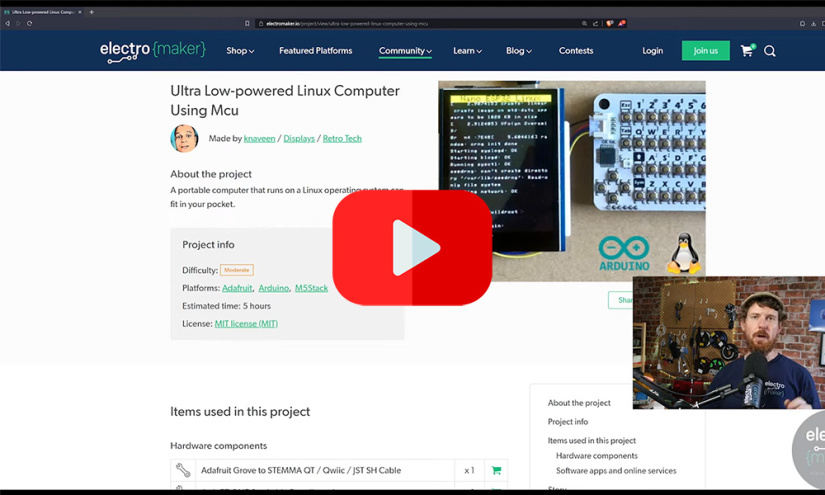
We recently featured this topic on an episode of the Electromaker show!
The Project Breakdown - Running Linux on an ESP32
At first glance, the idea of running Linux on an Arduino might not seem groundbreaking, especially with boards like the Arduino Pro Potenta X8, which is inherently a Linux board. However, Naveen's project is not about these high-end boards. Instead, he has managed to run Linux on an Arduino Nano, specifically the Nano ESP32 variant.
The project doesn't just stop at the Nano. It also incorporates an Arduino Uno, which manages the screen, and a compact PCB keyboard. The Uno essentially acts as a serial host, taking inputs from the PCB keyboard, processing them, and then sending them to the Nano ESP32 for further action. The Nano, in turn, communicates everything back to the Uno, which then displays the output on the screen.
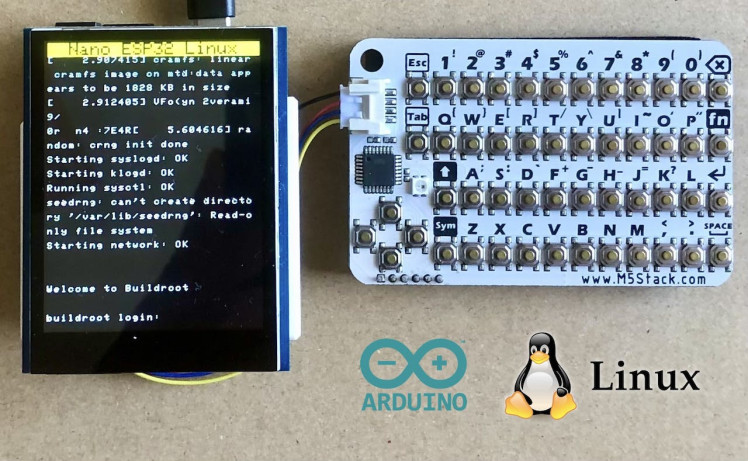
What's even more fascinating is that this isn't the regular Arduino Nano. This is the Arduino Nano ESP32, which runs with the ESP32 S3 chip. If you recall, there are development boards that run Linux with the ESP32 C3 chip. This project leverages the power of the ESP32 variant of the Nano, making it a compact, self-contained computer.
For those interested in the nitty-gritty, Naveen has provided a comprehensive write-up, complete with code snippets and a detailed explanation of the project's workings. He has even included a five-minute video showcasing Linux booting up on the Arduino, a sight that, for many tech enthusiasts, is a joy to behold.
Why This Matters - Running Linux on an ESP32
Running Linux on such a compact device opens up a world of possibilities. The extensor version of Linux running on ESP32 chips is a trend we're likely to see more of in various projects. The question many might ask is, "Why do this?" The answer is simple: because we can. Pushing the boundaries of what's possible with technology is what drives innovation forward.
Moreover, the idea of upcycling old tech, as highlighted in the Electromaker show, is a growing trend. Whether it's turning a broken camera into a retro gaming device or reviving an old radio with modern digital means, the possibilities are endless.
Links and Further Reading - Running Linux on an ESP32
For those eager to delve deeper into this project, you can find a detailed write-up, complete with videos and code snippets, on the Electromaker project hub. Additionally, for more information on Linux and its various applications, visit Linux's website.




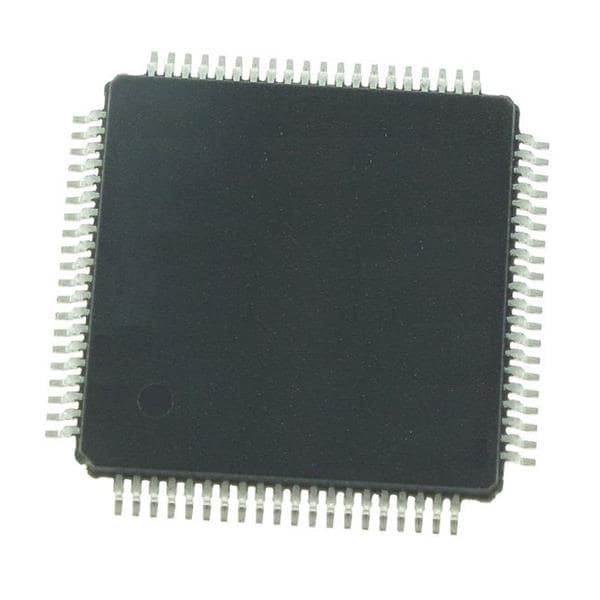
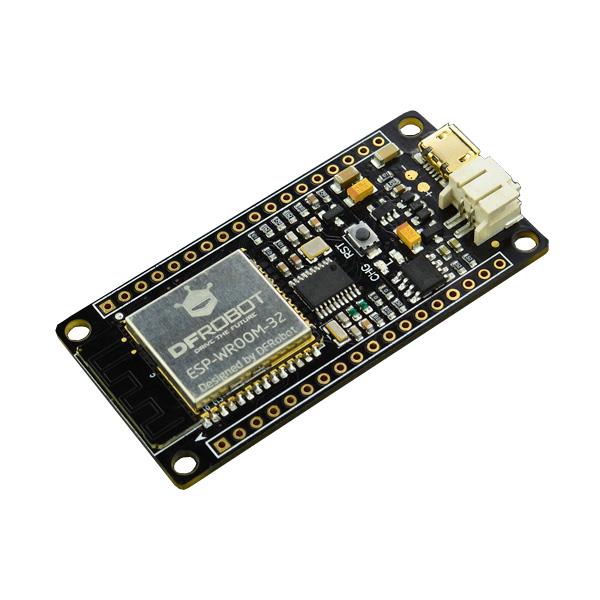
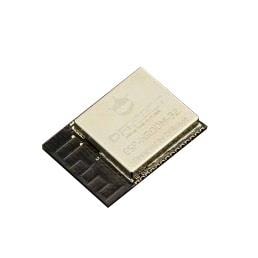
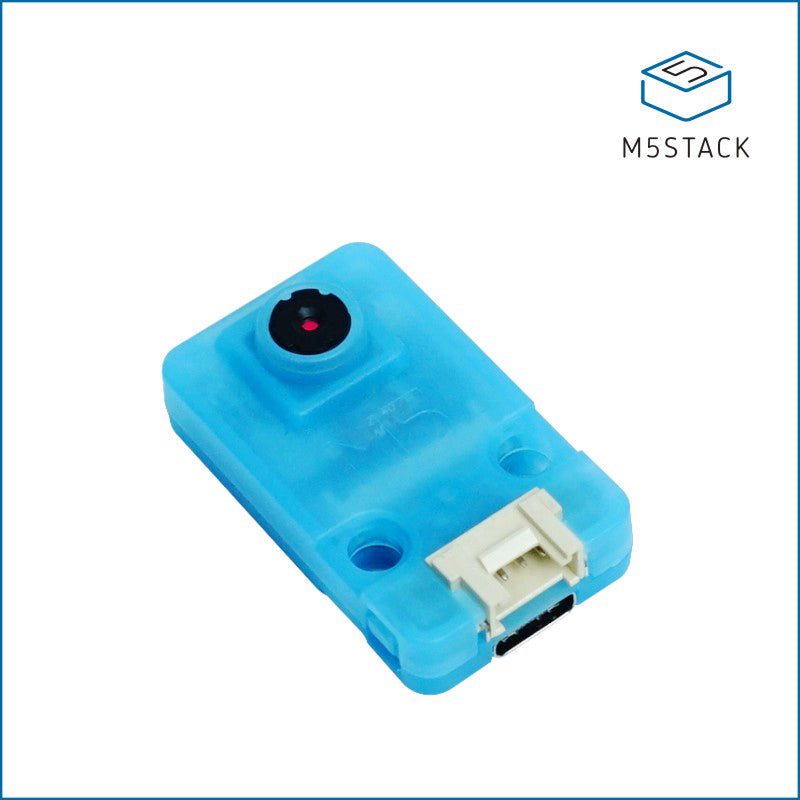


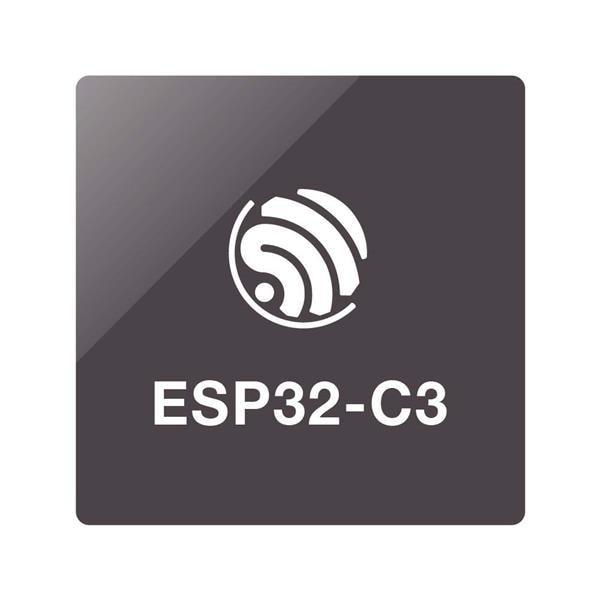
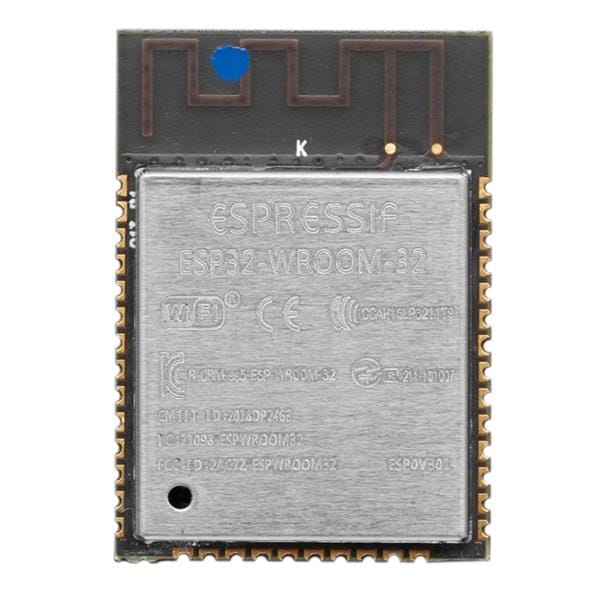
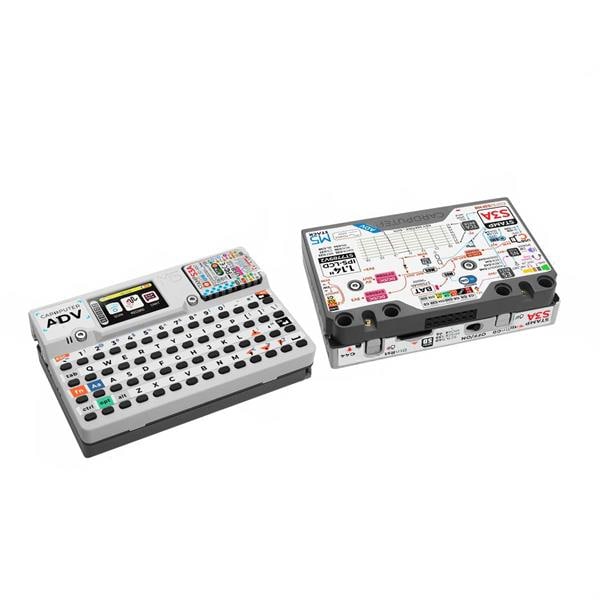
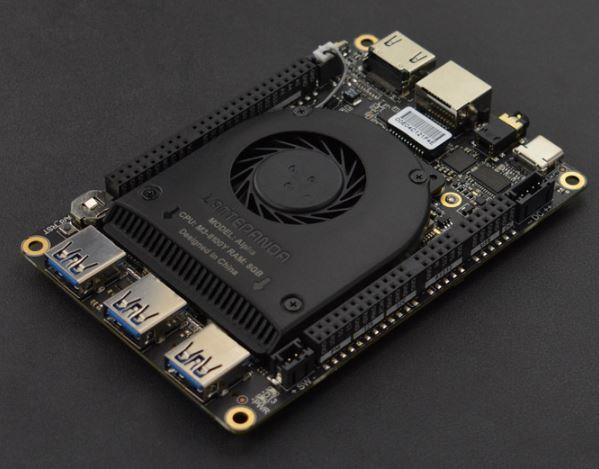
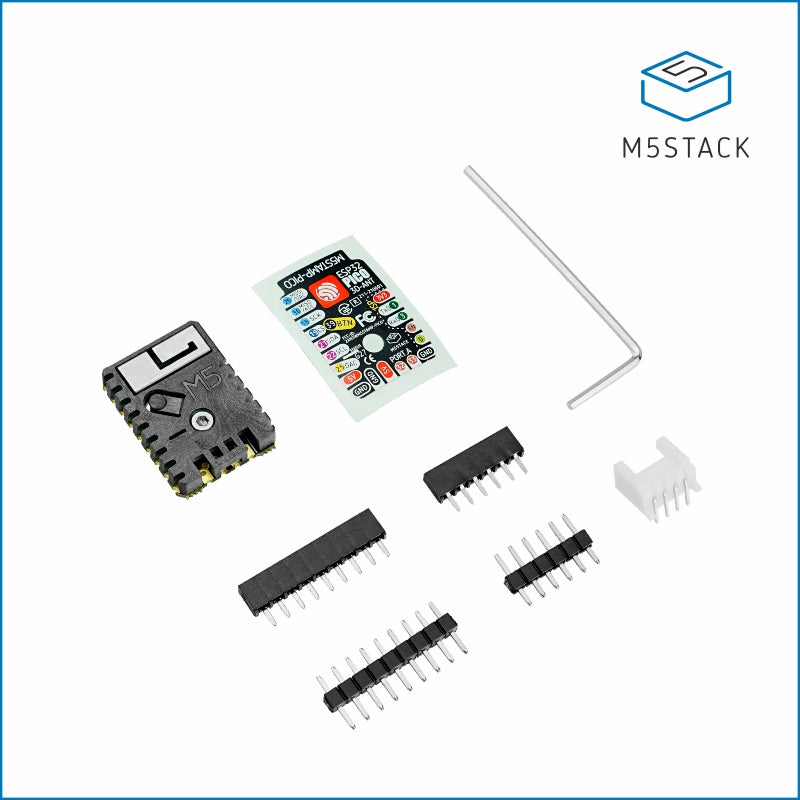
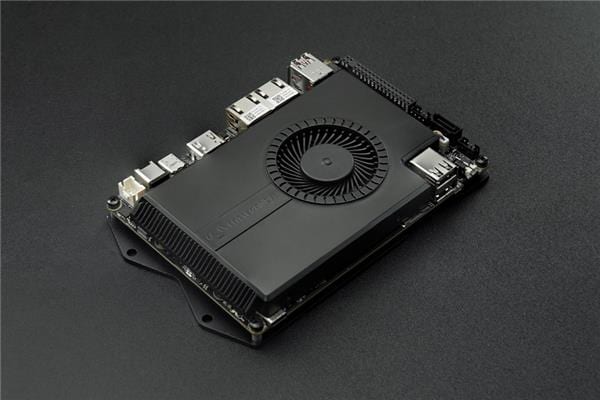
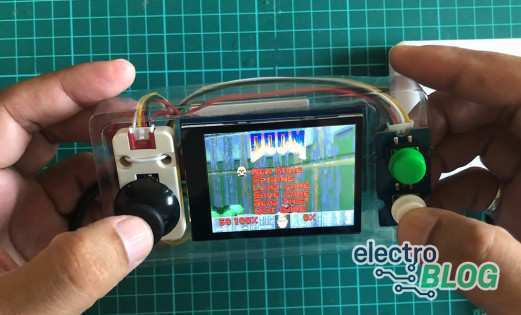
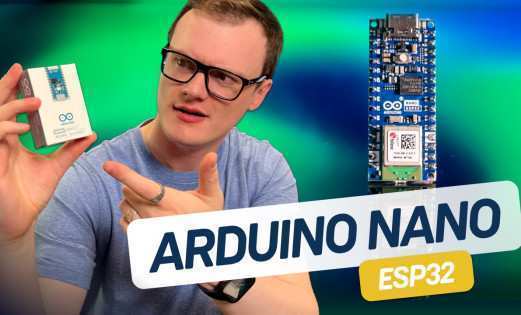
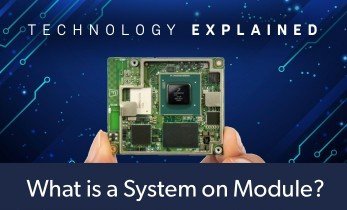

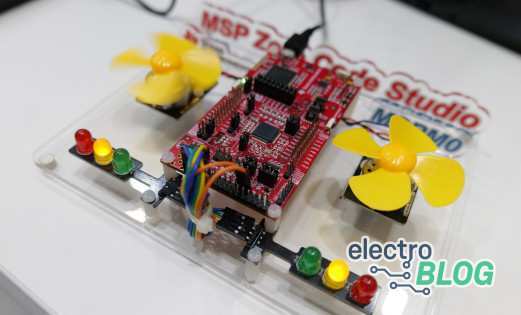
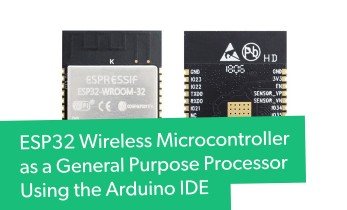


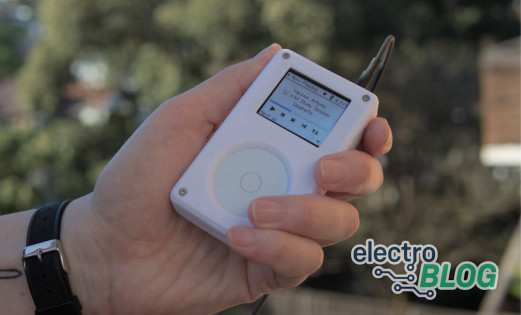
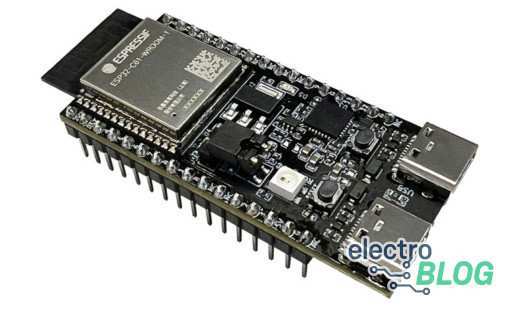
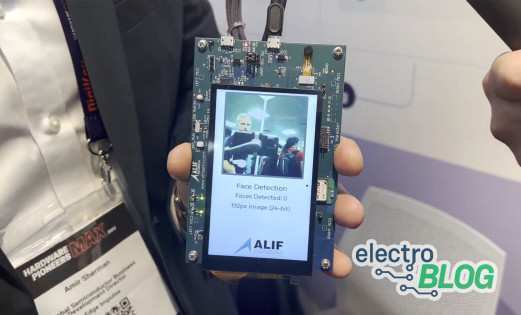
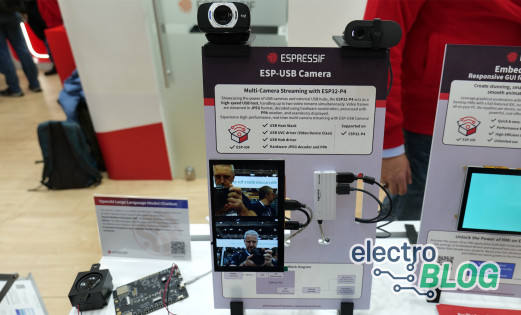
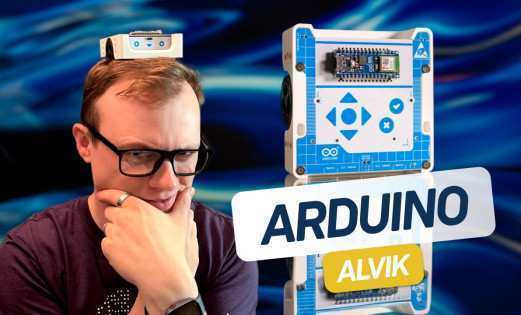



Leave your feedback...